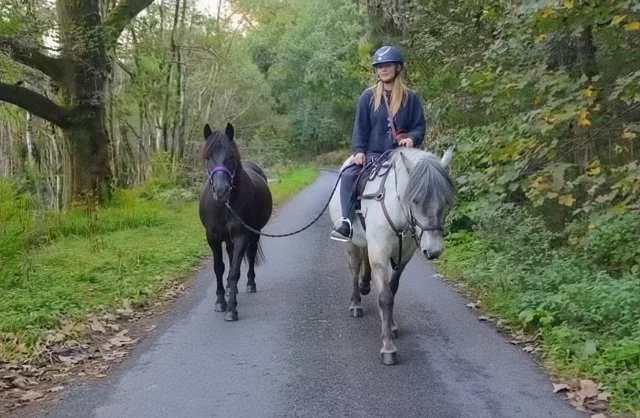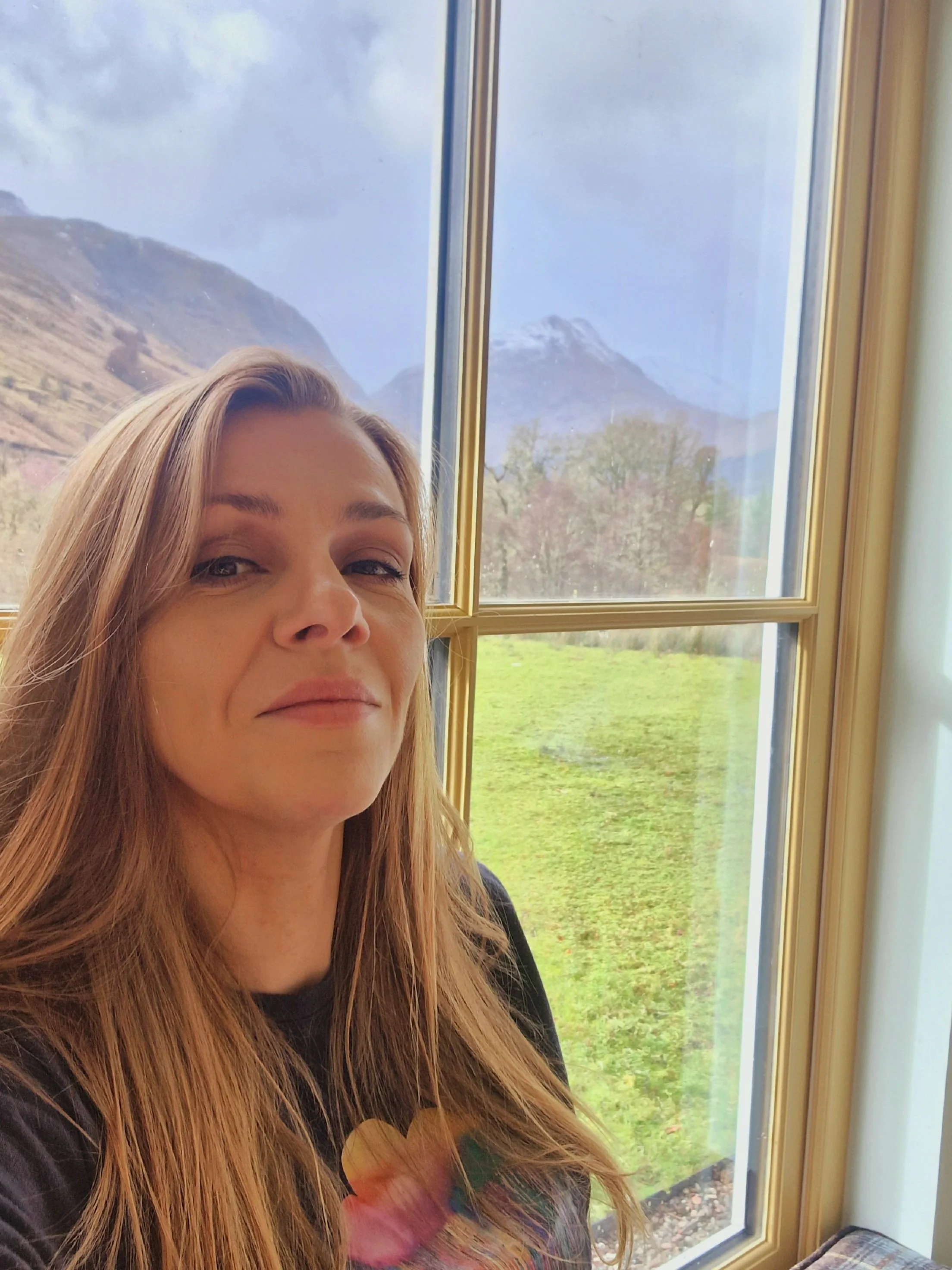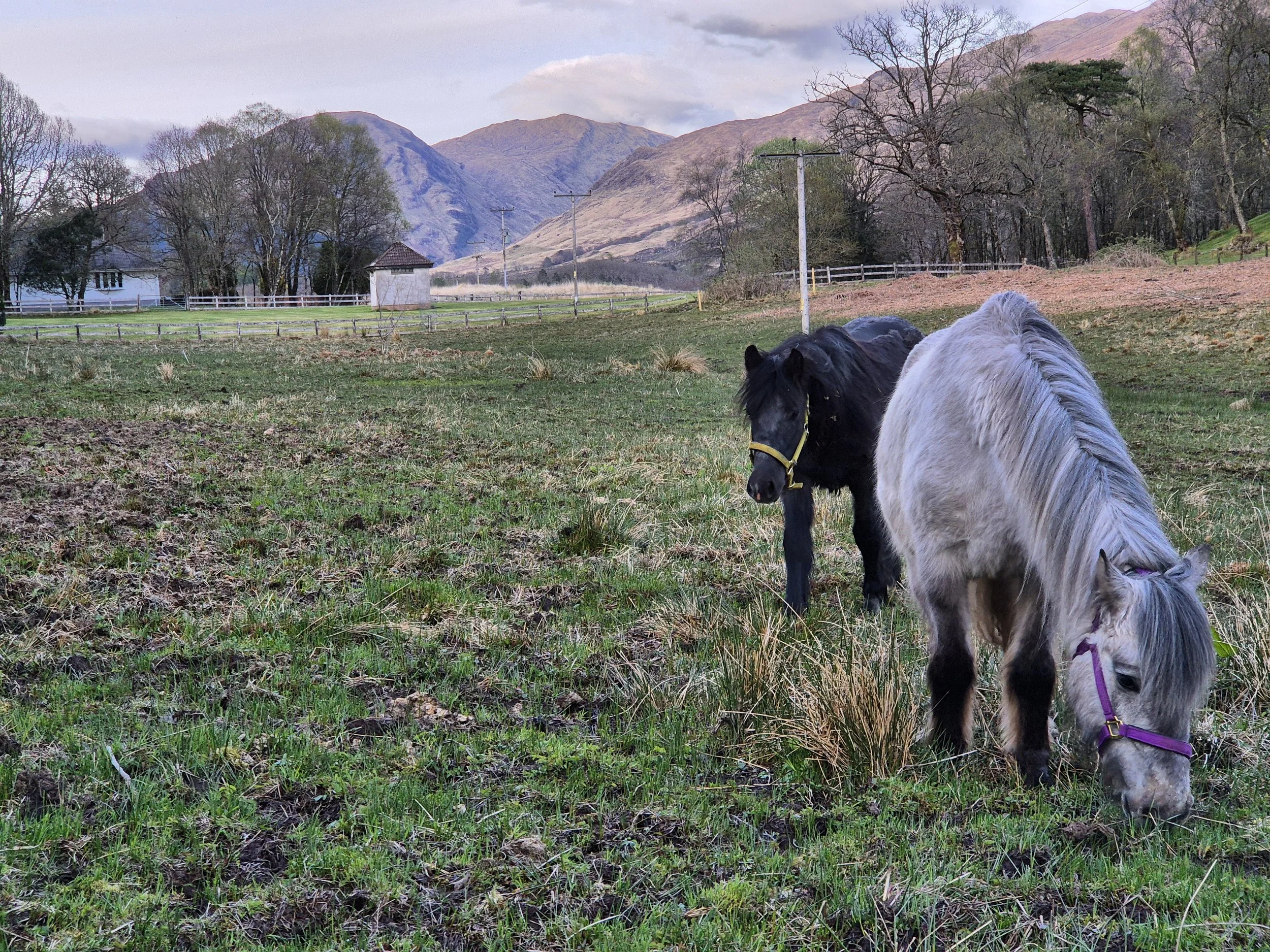October Profile: Rebecca Ralston
I’m Rebecca Ralston, based in Argyll & Bute in the Scottish Highlands. I live and work on a shooting estate with my partner, doing a bit of everything that comes with that life. I’ve always been guided by the natural world, how living systems connect, respond, and depend on one another. When I left school, there didn’t seem to be many jobs in “saving the planet,” so I studied law instead, drawn to how systems work, how they can be shaped, and how learning moves from observation to practice.
After graduating, I worked in property for a while - at different levels, eventually setting up and running my own successful company. But horses were always my constant. I got my first Highland pony when I was 12 and worked at a riding school to pay for its keep. That’s where I first fell in love with the breed.
When Covid hit, I’d just sold my house and left my job to move in with my partner. That unexpected pause gave me space to return to the things that matter most to me - nature, art, animals, plants, and, of course, Highland ponies. Together we took on the care of the houses, gardens, and land where we now live, a complete change of direction for us both.
The work is varied, and the learning never stops. Over time, it’s connected us to this place in ways we couldn’t have imagined.
Five years on, one part of my role focuses on the garden’s ecosystem - home to rare plants, birds, and insects. I manage the meadows to encourage life at every level, spending my days observing, recording, and making small, practical changes that respond to what the land itself is asking for.
I’ve learned that conservation only works when it’s practical and rooted in place - the Highlands remind you of that every single day.
I’ve had my Highland ponies here for two years now. Merlin is four and Osiris is two, and I’m training them for traditional estate work, including eventually helping with deer stalking. It’s slow, patient work- getting to know their minds, understanding the hill, and building trust with welfare at the centre. There’s something deeply grounding about working with a breed that truly belongs here, watching them move through the landscape as if it’s part of them, seeing that ancient partnership between pony and person come to life again.
Working with this land has taught me patience and resilience. The hill doesn’t hurry, and good work follows the rhythm of the seasons, not the clock.
More recently, I’ve started to look at the wider landscape, applying what I’ve learned in the garden on a larger scale. I’ve been studying old manuscripts and estate records from before industrialisation and the land reforms that displaced so many people. I want to understand what was lost, what endured, and what still makes sense today. My focus is on practical, place-based land management that respects living systems, uses native breeds like the Highland pony, and keeps people meaningfully connected to the ground they care for.
This season, I’m deepening my hill work with the ponies and developing conservation grazing that fits the land, work that helps landscapes, wildlife, and communities thrive together. Finding my place in this ancient relationship between people, ponies, and the Highland hills has brought me a sense of purpose I’d been searching for all my life.
What inspires me now is the chance to restore that working bond between the ponies and the land. I’d love to connect with others who have experience training Highland ponies for traditional tasks - pulling sleds, clearing bracken where machines can’t go, and all the ways they’ve worked alongside people for centuries. I’m at the beginning of that journey and would really value learning from those who understand this heritage - so together, we can keep these traditions alive in ways that honour both the ponies and the land they belong to.





